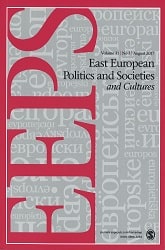Latvia. Normality and Disappointment
Latvia. Normality and Disappointment
Author(s): Andrejs PlakansSubject(s): Political history, Government/Political systems, Transformation Period (1990 - 2010), Period(s) of Nation Building, Post-Communist Transformation
Published by: SAGE Publications Ltd
Keywords: Latvia; independence; public opinion; Baltic states;
Summary/Abstract: Nearly two decades after renewed independence, the population of Latvia is quite unhappy with the status quo. The number of inhabitants in the country continues to decline due to outmigration and a low fertility level; the international image of the country is believed by Latvians to be ambiguous at best, negative at worst; there is widespread disillusionment with the new political elite, which is thought to be incompetent as well as corrupt; the market economy has not produced straight-line economic progress but rather a growing subpopulation living at the minimal standard of living; continuing divisions of opinion over a wide range of subjects (such as the meaning of World War II and the question of the country’s official language) continue to suggest at least incomplete social integration; and the openness brought by the instruments of the information revolution appears to many to contribute to dissension and not cohesion. This was not the normality Latvians had aspired to during the heady years of unified opposition to Soviet power in the 1988–91 period, but the characteristics of this normality are shared in different combinations by many members of the European Union.
Journal: East European Politics and Societies
- Issue Year: 23/2009
- Issue No: 04
- Page Range: 518-525
- Page Count: 8
- Language: English
- Content File-PDF

